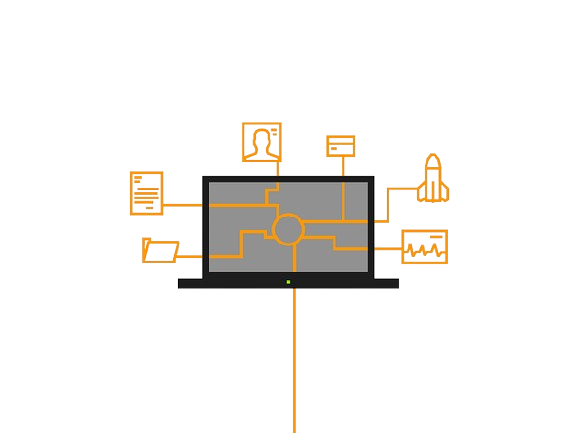
What is VPN Detection?
VPN detection is how websites, online services, and internet service providers (ISPs) find out if you are using a virtual private network (VPN). VPNs help keep your online activities private by encrypting your data. However, some techniques can still reveal that you are using a VPN.
Why Do Websites Use VPN Detectors and Block VPNs?
- Prevent Fraud When people use VPNs, it can be hard for websites to know where they are really from. This can increase the risk of fraud. Websites block VPNs to prevent people from creating multiple accounts, fake profiles, and using false identities. For example, VPNs can hide a user’s real location, which might be used for criminal activities like credit card fraud or cyberattacks. Services such as e-commerce sites, online games, cryptocurrency exchanges, and banks use VPN detection to stop fraud. Banks, in particular, are careful about VPNs. If someone logs into their bank account using a VPN, it might look like they are logging in from a new or unusual location, which could be a sign of fraud. This often triggers security alerts and blocks access to online banking.
- Enforce Location Restrictions Some online services, like streaming platforms, only allow users from certain locations. This is often due to legal reasons. For example, some movies are only licensed for specific countries. Websites use VPN detection to prevent users from bypassing these location restrictions by using a VPN.
- Comply with Government Censorship In some countries, governments control what people can access online and block websites that do not align with their agenda. Countries like North Korea and China are known for strict online surveillance. China bans VPNs and many online services, while North Korea only allows a few websites. Governments force ISPs and online businesses to block VPN traffic to enforce these rules. This helps governments control online activity and limit access to content that opposes their policies or leaks information.
- Protect Copyright Websites also use VPN detection to protect copyrighted content. Since the late 1990s, media and entertainment companies have worked hard to stop piracy of music, movies, TV shows, e-books, software, and games. When someone uses a VPN to access content that is not available in their region, it forces websites to block VPN users to protect their content and prevent piracy. Disclaimer: Using a VPN to bypass copyright restrictions can lead to legal issues and undermines the rights of content creators. It is best to use legal means to access content.
How Do Websites Detect VPNs?
- IP Address Monitoring Websites often track your IP address to detect VPNs. VPNs assign you an IP address from their server, but these IP addresses are used by many people. If multiple users access a website using the same IP address, it can indicate a VPN. The website may then block that IP address.
- Geo-location Matching Your device or browser might give away your real location even when using a VPN. If the location data does not match the VPN location, it can raise suspicion. Websites might compare this data with your account details or previous logins and block access if they suspect you are using a VPN.
- WebRTC Leaks WebRTC is a technology that can reveal your real IP address, even if you are using a VPN. If a website detects a difference between your real IP address and the one from your VPN, it can indicate VPN usage and block you.
- Packet Analysis VPNs alter the structure of data packets slightly. Websites might use techniques like traffic fingerprinting and protocol or port analysis to identify these changes and detect VPNs. They examine the ports you use, the structure of your traffic, and data flow to see if you are using a VPN.
How Do ISPs and Local Networks Detect VPNs?
- Traffic Analysis ISPs can detect VPNs by analyzing traffic patterns. Encrypted VPN traffic stands out from normal traffic. ISPs can see if your traffic is consistently sent to a specific server, which helps them recognize VPN usage.
- Deep Packet Inspection (DPI) DPI is a complex method used by ISPs and local networks to detect VPNs. This technology analyzes data packets and looks for patterns that suggest VPN usage. It is mainly used in countries with strict internet control like Russia and China.
- Port Analysis Many VPNs use specific ports for connection. System administrators can monitor these ports and set rules to block VPN traffic.
- Connection Frequency With a VPN, you usually stay connected to one server for a long time. This steady connection can alert ISPs to VPN usage, leading them to block access to certain services.
How to Avoid VPN Detection
To keep your online activities private, especially in places with strict internet rules, you can use obfuscated VPN servers. These servers disguise the fact that you are using a VPN, making it harder for anyone to detect.
ISPs can often tell if you are using a VPN by analyzing your traffic patterns. Obfuscated servers mix up these patterns, making it more difficult for tools designed to block VPN traffic to detect you. ISPs would need to check your traffic manually to find out if you are using a VPN.
Online security starts with a click. Stay safe with the world’s leading OhioVPN.

Hi, I’m Chibuzor Abraham from Nigeria. I love technology, especially VPNs, which protect your online privacy. I manage Ohiovpn.us, where I review VPN services for Ohio. Our reviews look at speed, security, and ease of use to help you find the best VPN. If you buy through our links, we get a small commission, which helps support our site at no extra cost to you.

